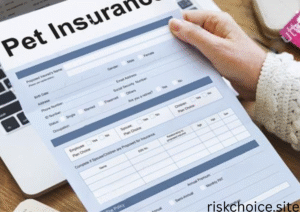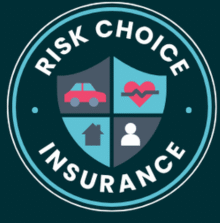
Whether you own a boarding kennel, veterinarian, dog walker, cattle farmer, or pet groomer—animal business insurance is not just a need but also a need. Your company deals with living things, and that naturally carries a range of hazards. Having the correct insurance in place might make all the difference between recovering from a loss and stopping your activities.
Everything you need to know about animal business insurance—what it covers, why it’s important, how much it costs, and how to choose the best policy for your particular circumstances—will be broken out in this page.
Animal Business Insurance is what?
Specialized form of commercial insurance, animal business insurance shields companies engaged in animal treatment, handling, or care. Dogs, cats, horses, cattle, exotic animals, and more might all go under this category. The insurance is catered to the special hazards connected to companies linked to animals.
Coverage can vary depending on the policy from:
general liability
Coverage for animal baies.
Veterinary malpractice
Real estate insurance
Compensation for workers
Business vehicles
Professional Responsibility
Business interruption
For what reason would you want animal business insurance?
Though it’s not without risk, running an animal-based business is quite fulfilling. These are a few situations where animal business insurance would be useful:
At your grooming business, a dog bites a client.
Under your care, a horse suffers injuries.
Your animals are sickened by an epidemic.
There is fire in your pet boarding house.
Your worker cuts himself handling an animal.
In any of these circumstances, insurance helps cover the expenses and legal obligations so you can concentrate on running your company, without worrying about how you will pay for unanticipated damages.
Who requires animal business insurance?
Professionals and companies listed below gain from animal business insurance:
pet cleaners
Pet sitting assistants
Dogs walkers
Veterinary professionals
Pet consultants
Owners of kennels and cat cafes
Pet boarding houses
Farms for poultry and livestock
Rescue shelters for animals
Stable builders and equine therapists
Mobile veterinary services
Companies that deal in pet transportation
Breachers of animals
if your company is big or small, you have to be protected if you offer goods or services for animals.
Principal Forms of Animal Business Insurance Coverage
1. General Liability Coverage
For most companies, this is basic. It addresses property damage resulting from your activities or premises as well as physical injury. For instance, this policy helps pay for legal and medical charges should a client be bitten by a dog in your grooming service.
2. Coverage of Animal Bailee
For everyone who looks after another person’s animal, this is really vital. Animal bailee insurance covers the cost whether you are boarding dogs, training horses, or moving pets should an animal in your care be injured, lost, or killed.
3. Veterinary Malpractice Insurance
This is veterinary equivalent of medical malpractice insurance. It guards against legal action resulting from mistakes in surgery, therapy, or diagnosis.
4. Professional Liability Coverage
Also referred to as Errors and Omissions (E&O) insurance, this policy covers you should a client say your professional advice or services resulted in financial loss or injury to their pet.
5. Commercial Property Insurance
Whether you own or lease a space—such as a grooming business or boarding kennel—this guards your physical assets against damage from fire, theft, storms, or vandalism.
6. Worker’s Compensation
Usually, if you have staff, legal requirements call for this insurance. Should your staff member be injured on the job, it covers missed income and medical bills.
7. Commercial Vehicle Coverage
Should your company operate vehicles—such as those used for animal or pet transportation—you will want commercial auto coverage in should an accident occur.
8. Interruption of Business Policies Insurance
Should a disaster cause you to temporarily close your animal business, this coverage covers lost income as well as continuing expenses.

Typical Animal Industry Risk Factors
Knowing the hazards particular to your line of work facilitates the selection of appropriate insurance. Typical hazards include:
Animal injury or death particularly in training, boarding, or grooming settings.
Human injury: Animal kicks or bites can be really severe.
Animals can destroy equipment, automobiles, or houses.
Diseases and infections especially in veterinary offices and cattle farms.
Negligence lawsuits: Should a client feel you neglected their needs, they could file a lawsuit.
Animal theft or escape: Losses from animals taken or escaped can be rather large.
The correct insurance will help you avoid bearing these losses by yourself.
How much does animal business insurance cost?
Insurance rates differ depending on:
Sort of company
Employment count
Yearly income
Site
Kind and count of the animals handled.
Coverage restrictions and deductible amounts
Broadly speaking:
Small pet sitting companies or grooming firms might pay between $400 and $1,200 annually.
Veterinary clinics could pay $1,500–$5,000+ yearly.
Depending on herd size and activities, equine or cattle operations may pay between $1,000 and $3,000.
The premium is probably higher in your company depending on its complexity or degree of risk. Bundling coverages into a Business Owner’s Policy (BOP) can help to lower total expenses, though.
How to Select Correct Animal Business Insurance?
When looking for an insurance, give these factors some thought.
Evaluate Your Risk Factors.
Make a list of conceivable hazards your organization confronts and connect them with suitable coverages.
Get Multiple Quotes
Prices and coverage terms can vary between insurance. Compare at least 3 quotes.
Cooperate with a specialist.
Select a broker or insurer with background in companies connected to animals or pets. They will be more sympathetic to your hazards.
Turn over the fine print.
Know limits, deductibles, and exclusions. Not all policies by default cover events connected to animals.
Change yearly.
Your insurance needs will vary as your company expands or changes—adding sites, staff, or services.
Top Insurers for Companies in the Animal Sector
These are a few companies well-known for offering customized coverage specifically in the animal sector:
Available nationwide, provides pet business insurance for boarders, trainers, and groomers.
The Hartford, well-known for small company insurance includes pet care.
Specialists in reasonably priced coverage for walkers, sitters, and groomers, Pet Care Insurance
Veterinary Business Advisors focuses on veterinary practices and associated professional services.
American Equine Insurance Group specializes in horse and equine commercial coverage.
Make sure your selected provider has knowledge of your particular specialization in the animal industry scene.
Conclusions
Running an animal-related business is about responsibilities rather than only pleasure. People who love animals are erratic as are animals themselves. Both the financial and emotional risks might be rather high. Whether you run a cattle ranch or are grooming a Pomeranian, the correct animal business insurance will protect your income.
Putting money into coverage now could save hundreds tomorrow. Invest some time investigating and select a strategy suitable for your company. Ask the appropriate inquiries and speak with an insurance expert knowledgeable about your field of work. Your company, your customers, the animals you handle all deserve that protection.
